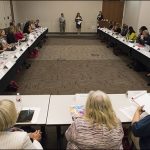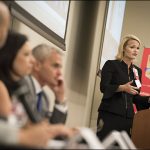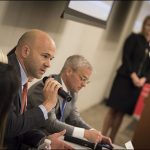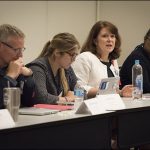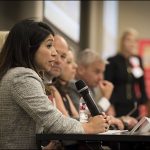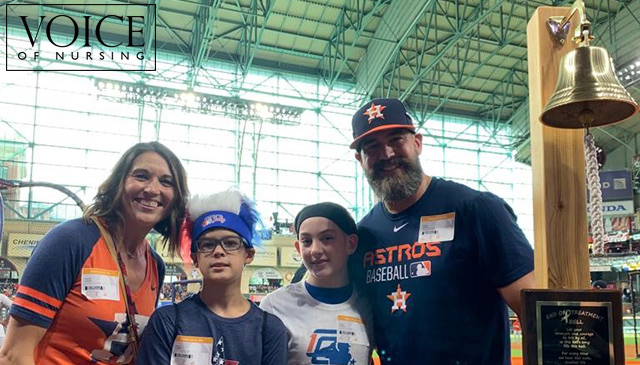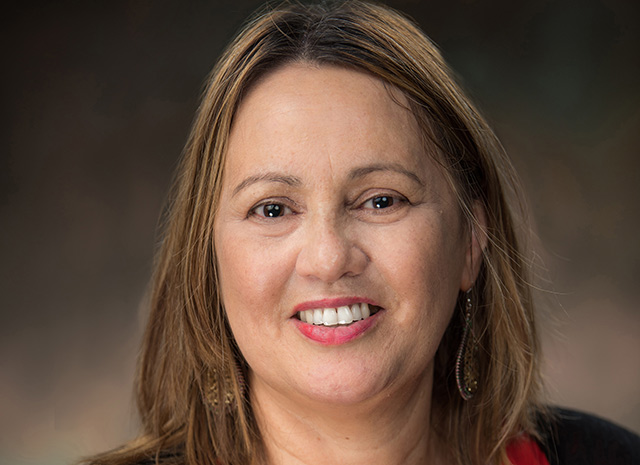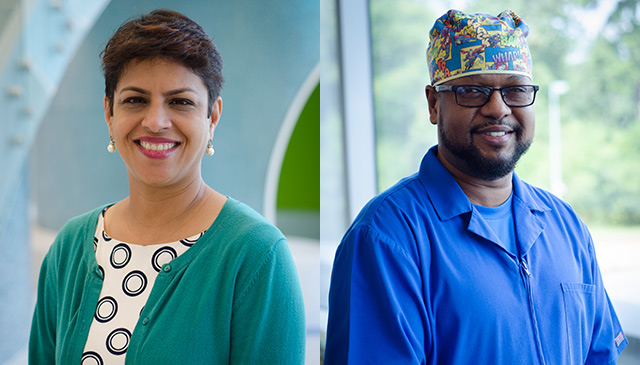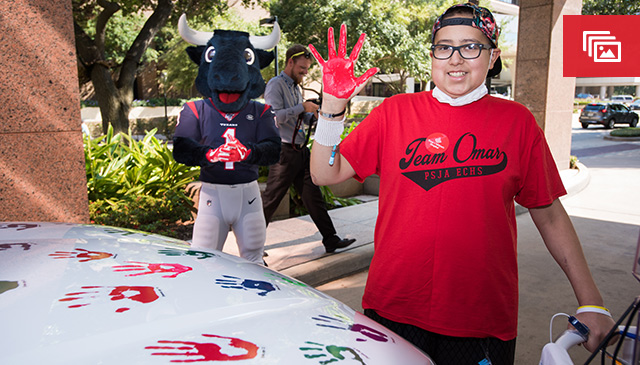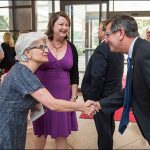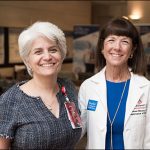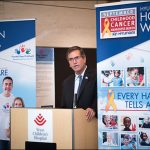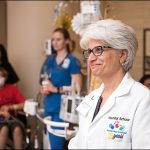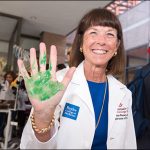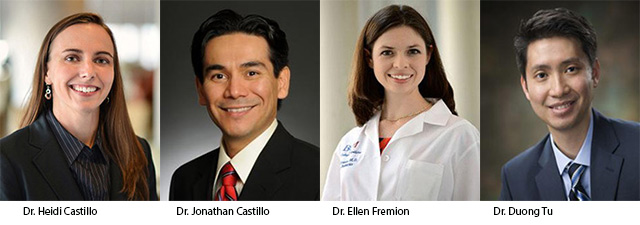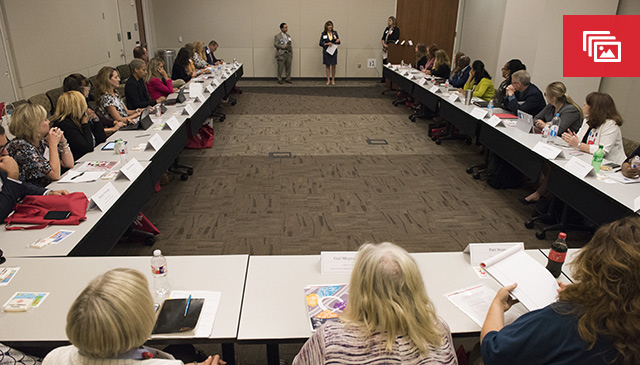
Texas Children’s recently hosted the Patient Access Collaborative’s Pediatric Patient Access Symposium held on September 5 and 6. This two-day conference provides a forum for the nation’s largest and most prestigious health systems to discuss, collaborate and advance initiatives that can vastly improve patient access to ambulatory care.
Each year, industry leaders from across the country come together to share ideas on solving some of the most challenging aspects of patient access. Approximately 50 attendees representing 20 of the largest pediatric hospitals in the country convened at Texas Children’s Pavilion for Women to attend this annual conference. “The Patient Access Collaborative offers us a forum – year round – to collaborate with our peers and move towards the shared goal of advancing access to care for children across the country,” shared Grace Karon, Assistant Director of Business Operations and Strategic Planning.
Highlights from the first day of the symposium included opening remarks from Texas Children’s Surgeon-in-Chief Dr. Larry Hollier, who shared this video of our hospital’s patient access journey, and the incredible strides our organization has made in the last year to improve access for our patients and their families system wide. Guests also had the opportunity to tour our state-of-the-art Lester and Sue Smith Legacy Tower and Mission Control.
The Patient Access Symposium also included several insightful workshops and presentations on patient access-related topics including scheduling optimization, national benchmarks, and referral management, to name a few.
Discussion groups run by Texas Children’s leaders offered attendees the opportunity to transparently share barriers and lessons learned from their own access journeys.
- Challenges of Governance, Sustainability, Leadership and Change Management in Access Journey
Trent Johnson, Assistant Vice President
Ramzey Ibrahim, Manager – Business Process Transformation
- Patient Access Technology Opportunity: Reducing No Shows, Call Center Optimization, Patient Portals
Julie McGuire, Director – Enterprise Systems
Colleen Julien, Manager – Enterprise Systems
Martin Wortley, Assistant Director – Customer Care Contact Center
Dr. David Bank, Vice Chair for Clinical Affairs – Ambulatory Services and Network Development at Texas Children’s Hospital and Baylor College of Medicine, delivered the welcome address for day two of the annual symposium. “As a result of the efforts of everyone involved in the Access initiative, Texas Children’s national reputation will become even stronger as we emerge as “THE” leader in the national effort to improve access to care for children and their families.” Dr. Bank is the founder of the Pediatric Access Collaborative and also serves on the Board of Advisors for the Patient Access Collaborative.
Day two of the symposium highlighted some of the recent milestones of two major Access initiative ventures that leveraged technology solutions to solve complex operational problems:
- Texas Children’s Space Utilization Program
Sara Montenegro, Assistant Vice President – Texas Children’s Pediatrics
Taylor Pierce, Business Process Engineer
- Texas Children’s Move to Online Scheduling
Diesa Samp, Director of Transplant and Ambulatory Nursing
Martin Wortley, Assistant Director – Customer Care Contact Center
Elisa Lange, Lead – Marketing Special Projects
“We are so honored to have this opportunity to host this year’s symposium at Texas Children’s Hospital,” said Texas Children’s Assistant Vice President Carrie Rys. “It was a tremendous opportunity to share our access improvement journey as well as gain valuable insight on improvement ideas from our peer network.”


